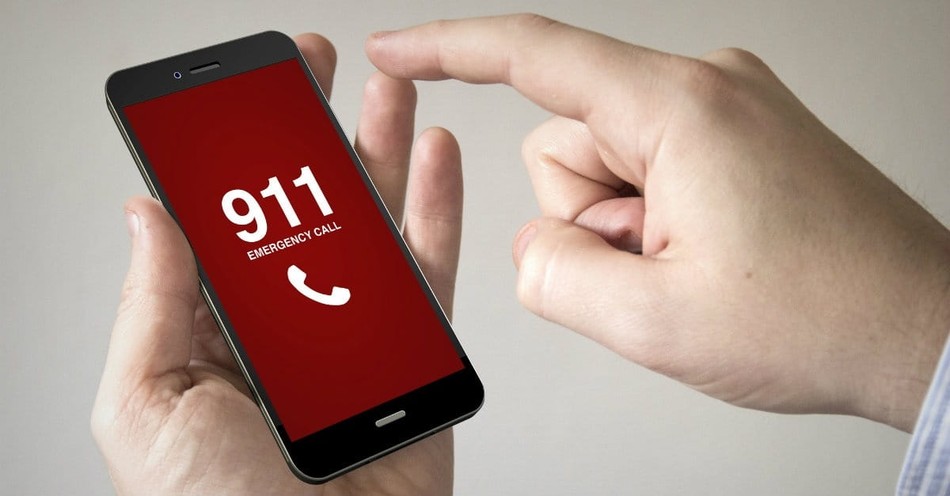Editor's Note: Pastor Roger Barrier's "Ask Roger" column regularly appears at Preach It, Teach It. Every week at Crosswalk, Dr. Barrier puts nearly 40 years of experience in the pastorate to work answering questions of doctrine or practice for laypeople, or giving advice on church leadership issues. Email him your questions at [email protected].
Dear Roger,
What do you do when you get "the call"? You know, the call that your son’s been in a car crash? Or, your wife has had a heart attack? Or, your daughter’s in the emergency room with an overdose? Or, your husband is on the floor unconscious?
“You’d better hurry if you want to get there in time to say your goodbyes.”
How should you respond when you get the call that may change life as you know it forever?
Sincerely, Traumatic
Dear Traumatic,
I got that call this week. My son-in-law almost bled out from an aneurysm in the OR.
Several days ago, Julie and I got the dreaded call from our daughter: “Brad has had a heart attack.”
Brie was working at Brad’s office, when she found him unconscious on the floor of the bathroom. She did CPR until the ambulance arrived.
She called us on our cell phone: “Thank God, it’s not a heart attack after all.”
“Then what is it?”
“They don’t know. They think that it may be a perforated colon and he has peritonitis.”
I whispered to Julie, “That is really bad.” When we got to the hospital they still had no diagnosis. Test showed no peritonitis. Thank God. Several hours later they finally realized that he was bleeding internally. An aneurysm on the artery that goes to his spleen had ruptured.
They removed his spleen and as they were working the aneurysm blew wide-open. It took twelve units of blood, four surgeons, two anesthesiologists, four nurses, and a profusionist to stem the tide of rushing blood.
When I asked Brie which letter I should answer for Ask Roger this week, she suggested that we share some practical steps to take when the emergency call comes. I asked her to take the lead. After experiencing “the call,” here are her suggestions.
1. Cry out to God.
Sometimes it’s as simple as, “Dear God, help!” and that’s okay. He’s there. And He already knows everything that’s happening (Psalm 70:1).
2. Get rational.
Figure out what needs to be done and do it. Call 911, help him breathe, etc. Put your emotions in a box and deal with the emergency. God gave us a great capacity for emotion—but also for rational thought. Use it. While all hell is breaking loose around you, you keep your focus on doing what needs to be done (James 1:5).
3. Keep swimming.
Don’t let your mind run wild with future implications. You won’t drown when your arms keep moving one stroke at a time. Not one day at a time—one moment at a time. Sometimes trusting God means doing what’s right in front of you (Deuteronomy 31:6).
4. Lean on friends and family.
Ask for help. You are not “fine” and that’s okay. Don’t try to be fine. God gave us each other for a reason—and people who love you want to DO something. Let them. You need it—and they do too. Think about how Paul told the churches to support one another (2 Corinthians 8:1-5; Galatians 4:14 a). That’s practical—not just in prayer or thought.
5. Don’t be alone.
Don’t. Coordinate people to be with you at all times. You are NOT bothering them. Remember that perfect love casts out fear (1 John 4:18). Let people show you love.
6. After the crisis, rest.
Stress and fear ravage your physical and emotional health. There’s a reason Psalm 23:4 is in the Bible—let Him lead you into green pastures and restore your soul.
7. Find comfort in God’s Word.
We need Bible passages we can depend on when life falls apart.
Brie read Psalm 91 to Brad when he was screaming with pain in the emergency room:
"Those who live in the shelter of the Most High will find rest in the shadow of the Almighty. This I declare about the Lord: He alone is my refuge, my place of safety; he is my God, and I trust him. For he will rescue you from every trap and protect you from deadly disease. He will cover you with his feathers. He will shelter you with his wings."
Personally, I go to Psalm 103:
"As the father has compassion on his children, so the Lord has compassion on those who fear him; For he knows how we are formed, he remembers that he made us out of dust."
Sincerely, Roger

Publication date: July 14, 2016




